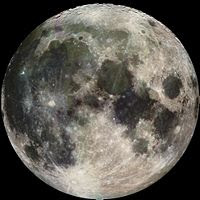Astrological Definition of Months
Normally in astrology, we often just take into consideration one's zodiac sign or animal sign to distinguish and determine one's personality and behavior. However, we neglect to see that in order to get your astrological sign or horoscope sign, we have to also consider your birth month. Indeed, the 12 months of the year have meaning to astrology.
Here is a shortlist of the meanings of the months.
January. It is the start of the year. It is also the start of the Julian and Gregorian calendars. And since it is the beginning, this 31-day month is named after the Roman deity, who opened gates and doors, named Janus. Ably represented by two faces, this means that he looked after the house which he guards.
February. This is the only month with only 28 days. Occasionally on leap years, it has 29 days. The name February was taken from the word Februare which means to purify. It is from this name that the term Februa came about which referred to the festival of expiation which had priests cleansing women. On the 14th of this month is St. Valentine's Day.
March. This month which has 31 days is the first month of the Roman calendar. The god of war, Mars, was the name which was copied for this particular month. During the 18th century, it was believed that the first three days were unlucky days and so no farmer would ever sow seeds on such days.
April. This is the fourth month of the Julian and Gregorian calendars. This month means "to open" which is also the same season when the petals of flowers start to bloom. According to the Romans, April is in honor of Venus. Also, in Greek, the month's name was taken from Aphrilis, or from Aphrodite. In the older days, the new year began on March 25th and then ended on the 1st of April.
May. This month is believed to have its name taken from Maia, the daughter of Atlas. She is also the mother of Mercury. In the ancient times, the month of May was considered unlucky especially for marriages since the celebration of the unhappy dead, or Lemuria, was held. There is even a proverb that says, "Marry in May, you'll rue the day".
June. This is the 6th month of the Gregorian and Julian calendars but only the 4th in the Roman calendar. If May was named after the state's senior assemblage, June was named after the junior assemblage of the government.
July. July was originally named Quintilius. Then it was renamed to honor Julius Caesar by Mark Antony. And since the meadows are in bloom in July, it is considered the "hay month".
August. This month was originally named Sextilis but was then renamed in honor of Augustus Caesar. However, when August initially was just a shorter month, he ordered it to be made 31 days just like July which is in honor of Julius Caesar.
September. In Charlemagne's calendar, September is considered the "harvest month". On September 4th is celebrated the Ludi Magni which is done in honor of Jupiter, Minerva, and Juno.
October. This is the 10th month of the Julian and Gregorian calendar. With 31 days, it is on the 15th day that the Equiria is celebrated. Since it is the time where failing leaves about, the Slavs called it the "yellow month". There were many attempts at renaming the month but all of them failed.
November. Though the Roman winter began on November 11th, it is only celebrated on the 13th with a banquet called Epulum Jovis, in honor of Jupiter. On the 1st is the All Saints Day and on the 2nd is All Souls Day. Falling on the 30th is St. Andrews Day.
December. Being the last month of the year with 30 days, it is where the Saturnalia, or the feast of Saturn is celebrated.
Though some people do not believe in astrology and horoscope, as well as in mythology, it would be interesting to note that a lot of commonalities actually happen in these months.
Read More @ Source
Comments
Post a Comment